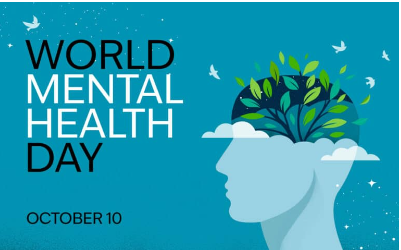
WPA statement by Professor Danuta Wasserman for the World Mental Health Day – on 10 October 2025, led by the World Federation for Mental Health (WFMH).

One of the greatest health threats in the world is the growing number of brain and mental disorders, commonly called neurological and psychiatric disorders. These account for 522 and 258 million disabilities adjusted life years (DALYs), respectively. This is more than the burden of cancer (260 million DALYs) and cardiovascular diseases (402 million DALYs).
Throughout the world, approximately 1 billion people (13% of the global population) live with mental disorders, with anxiety and depression being the most common. Eight percent of children and 14% of adolescents have mental disorders, and 50% of these begin by age 14, and 75% by age 24, with anxiety, depression, and ADHD being the most prevalent.
Moreover, there is a high comorbidity between neurological conditions and psychiatric disorders, with common psychosocial risk factors, such as lifestyle choices, social isolation, poverty and discrimination.
Unfortunately, access to population-based preventive and mental health services is inadequate everywhere, especially in low- and middle-income countries with a treatment gap of 90%. Globally, only 2% of health expenditures are directed towards mental health.
Addressing the consequences of poor mental health on the world population and economy requires the permanent allocation of governmental funding in relation to the prevalence and burden of mental disorders in each country. We also need to take advantage of existing services and work under a unifying goal of integral brain health.
With this idea in mind, the WPA Action Plan intends to boost the mental health of patients, psychiatric staff, and the general public through encouraging and enabling psychiatrists and the field of psychiatry to embrace communication, prevention, international collaboration, and a new leadership role in society.
To accomplish this goal, the WPA Action Plan for 2023-2026 prioritises the following actions: implementation of evidence-based therapies through the Specialist Corner, improvement and preservation of mental health through the adoption of healthy lifestyle choices illustrated in the Healthy Lifestyles Hub, research, and improved communication of knowledge and ideas.
 792
792 






